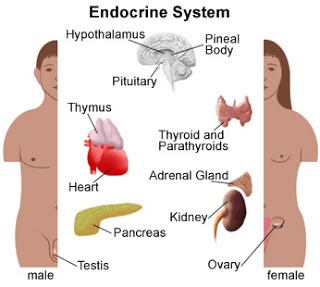Everyone must have heard about the word “Hormones”, but if anyone asks from you: what are hormones; will you be able to answer this question? Have you ever tried to know about it? No? Don’t worry! Let’s get it a start here.
What Are Hormones?
Hormones are the chemical messengers that are directly released into the blood, which takes them to the tissues and organs of the body to perform their functions.

There are various types of hormones that perform differently for body functions and other processes. Some of these are listed below:
- Maintenance of the body temperature and thirst
- Development and growth
- Cognitive function and mood
- Metabolism of food items
- Reproductive growth and sexual functions
Youtube.com: What are Hormones and how do they affect our bodies? (By Dr. JC Nerette)
Learn about the hormones in our the body (Estrogen, Testosterone, DHEA, HGH and more), how do they interact with the organs?, their importance for our functions, and what happens when they decline as we age.
Where Are They Released From?
They are released from the endocrine glands in the body. The endocrine glands are ductless, that is why; the hormones are released directly into the blood stream. The major endocrine glands included by our body are –
- Pancreas
- Pituitary gland
- Ovaries
- Pineal gland
- Testes
- Thymus
- Adrenal glands
- Thyroid
These organs released hormones in very small amounts, and it takes only a few minutes to do the major changes in the body.
Signs & Symptoms of a Teenage Girl (Hormone Imbalance)
Many hormonal changes occur during the teenage years. Teenage Girl often gets the first periods during early adolescence, and many young girls experience symptoms such as acne, mood swings, oily hair and menstrual cramps. Most of these discomforts are a normal part of growing up.
- Menstrual Irregularities
- Heavy Bleeding
- Facial Hair
- PCOS Symptoms
- Other
Hormones And Diseases
 The disorders of hormones are recognized in the laboratory and also, by clinical appearances and its features. The tests done by the laboratory can also be used to check body fluids such as urine, saliva or blood for hormone abnormalities.
The disorders of hormones are recognized in the laboratory and also, by clinical appearances and its features. The tests done by the laboratory can also be used to check body fluids such as urine, saliva or blood for hormone abnormalities.
However, in the case of lack of hormone, you can opt for hormone replacement therapy, and in the case of excess production of hormone, you can opt for medication that is used to decrease the effect of the hormone.
For instance, if an individual is suffering from an underactive thyroid gland, then he/she might be treated with synthetic thyroxine and if an individual is suffering from an overactive thyroid, he/she may be advised to take a drug such as propranolol to get rid of the effects of the excess thyroid hormone.
Now that you know what are hormones and how they are secreted. You can tell about them to anyone if anyone comes across with the same question.



























![The Best Workout Plans For Women [5 Days / 2 Sessions] workout plan for women](https://ruixinxin.com/wp-content/uploads/2014/11/workout-plan-for-women-100x70.jpg)
![How Do You Get A Yeast Infection? [Causes Of Yeast Infections] how do you get a yeast infection](https://ruixinxin.com/wp-content/uploads/2015/01/how-do-you-get-a-yeast-infection-100x70.jpg)





